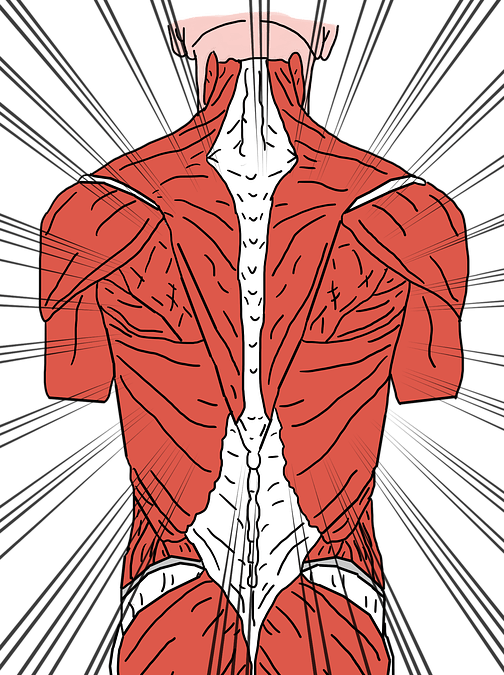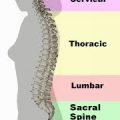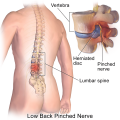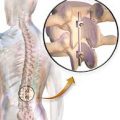Table of Contents
Will a back brace help degenerative disc disease? The field of pain management uses various techniques in order to address painful symptoms brought about by degenerative disc disease. DDD usually causes lower back pain in patients and this is often hard to treat. There are many patients that try combinations of treatments before finding out the best pain relief. You need to find the right treatment for you in order to complete your daily routines. Aside from that, you also need to maintain a fitness routine and exercise. The list you’re about to learn contain some treatments that are usually prescribed for patients diagnosed with DDD or those with chronic back pain. In this article, you’ll learn the answer to your question, will a back brace help degenerative disc disease?
Psychological Tools
This DDD treatment involves use of behavioral methods in order to help patients manage their low back pain by themselves. For instance, cognitive therapy teaches patients on how to lessen the pain in their lower back through techniques. They teach relaxation techniques as well as visualization techniques among others. Biofeedback also includes gradual alteration of neuromuscular signals that can help alleviate lower back pains and its other symptoms.
As with anything else, chronic pain can certainly provoke emotional reactions like fear. It depends on what a person believes about pain signals. In other cases like in engaging activities like bodybuilding or sports – related activities, chronic pain in more of a nuisance; something that needs to be overcome so that one may continue doing a particular activity.
The vital role that our minds play when it comes to perceiving chronic pain is recognized not just in medical literature but also in the International Association for the Study of Pain. It states that the definition of pain is always subjective. It is something that’s defined by the person who experiences it.
Here’s the thing, did you know that the brain can be trained on how to manage pain sensations? Yes! You can train your mind to control chronic pain, or at least have coping strategies especially when it comes to managing persistent pain. This together with other pain management therapies can certainly help a person overcome the painful symptoms that DDD can bring.
In the following sections, you will learn about the different pain management techniques as it can help you feel less dependent on pain medications. You’ll also feel more empowered when it comes to controlling your pain.
Restorative Sleep and Rest
Patients suffering from chronic lower back pain often say that they have difficulty in falling asleep and staying asleep. This will eventually lead to less restorative deep sleep. This sleep pattern can certainly reduce one’s energy, and can also make the person depress or feeling fatigue. For patients with sleep problems, it’s important to treat both DDD symptoms and also address the sleep problems you may be having.
What physicians usually give is sleep medications. They also suggest behavioral changes. This includes going to sleep and waking up on a consistent schedule, developing a relaxing pre – sleep routine such as reading a book or having a warm bath, and also avoiding naps during the day.
Chiropractic Manipulation
Manual manipulation is usually done by a chiropractor as well as other qualified health professionals. This is thought to relieve lower back pains as it takes the pressure off sensitive neurological tissues, restoration of blood flow, increasing range of motion, creating chemical reactions, and reducing muscle tensions.
Epidural Steroid Injections
Direct delivery of anesthetic or even steroids into the spine, particularly in the epidural space can give relief to lower back pains. The pain relief is just temporary but it can be of help for the patient to feel comfort whenever they started exercising or getting into rehab programs. Epidural injections are effective when it comes to providing significant pain relief about half the time, and are limited to not more than 3 per year.
Electrical Stimulation
The use of electrical stimulations can also be helpful in order to relieve back pain from DDD. But there’s little evidence in literature to support the efficacy. However, it does seem to lessen the pain for most people. It also helps them function better with less pain meds. One example is the Transcutaneous Electrical Nerve Stimulation units, or TENS units. Pads are applied to the painful areas, and a low current electrical charge is transmitted. The theory is that these electrical signals override pain signals.
Back Braces
Will a back brace help degenerative disc disease? Low back braces can help lessen the episodic low back pain from DDD through limiting the spine’s motion. However, some doctors caution the use of back brace especially for a long time because it can weaken the muscles. Short term bracing is ideally a good option for some patients.
A lower back brace can be a great tool in the treatment plan for those diagnosed with spinal conditions. It can also provide support for people who just had back surgery.
Back brace are also known as LSO (lumbosacral orthosis). This may be prescribed by your doctor, and it can be bought over the counter. Non – prescription braces are usually available without the recommendation of a doctor. It’s also important to wear these devises based on the instructions in order to prevent further damage to the lower back.
Traction
The use of traction can also help alleviate lower back pains. This is because it allows the muscle to relax. However, patients should be aware that there is no scientific evidence that traction will reverse the degenerative spine process. Although traction is not harmful, it can be expensive and patients should be wary of using traction due to the lack of scientific evidence of its efficacy in treating low back pain. We hope you learned from this article and answered the question, will a back brace help degenerative disc disease?






 I love to write medical education books. My books are written for everyone in an easy to read and understandable style.
I love to write medical education books. My books are written for everyone in an easy to read and understandable style.